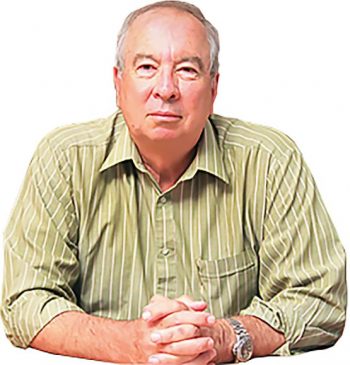
“How people go about writing their memoirs varies. Some focus on their working life, others start from when they were born, while others just write about interesting experiences. It’s inevitably subjective and idiosyncratic,” writes “Whimsy” columnist CLIVE WILLIAMS.
IF you’re an older person, you’ve probably thought about writing your memoirs and then cast the thought aside as too difficult or them not being of interest to others.

The reality is that we’ve all had unique lives and what may seem unremarkable to you could be of considerable interest to others. If you want to be candid about what you think of other people, you can of course choose not to distribute the memoir now and instead have it released after your death.
Some writers have a daily diary to assist their recollection, while others have to rely on memory. A diary can be useful, but I started keeping a daily diary from 1993 and find myself bogged down from that point on because of the detail the diary contains.
The value of memory is that you’ll be hitting the highlights as you remember them. The downside is that a story often related may now inadvertently contain false content.
I met a while ago with the family of someone who worked for me and now has onset dementia. Talking to his son, I discovered that a lot of his pre-dementia anecdotes were not what really happened (I know mine are accurate because I recorded them at the time).
I read a lot of autobiographies for enjoyment and there is, of course, a tendency for writers to gloss over the things they didn’t do well, are not proud of, or disturbed them – and focus on more positive aspects. That’s inevitable. As the Barbra Streisand song goes:
Memories, may be beautiful and yet,
What’s too painful to remember,
We simply choose to forget.
Biographies (a person’s story written by someone else) are usually a bit more objective but rely on someone else’s research and may not accurately reflect the subject’s views.
In my father’s case, his memoir was a family effort. Dad had lots of interesting anecdotes, so in 1985 when he was 71, I persuaded him to record his memoirs. I went to his house each week with a tape recorder, and he would talk for an hour about a decade in his life, working in chronological sequence. He had a week to think about each decade. Production was a family effort. My sisters-in-law word-processed the recordings, my brothers and I edited the draft, and dad made any necessary corrections. We photocopied the final work and had six copies bound for the family.
Our father died aged 93 in 2008. His book, “A Soldier’s Life”, is now a treasured possession to be passed down through the family.
How people go about writing their memoirs varies. Some focus on their working life, others start from when they were born and do it chronologically, while others just write about interesting experiences. It’s inevitably subjective and idiosyncratic.
The actual mechanics of doing it could be writing or word processing it yourself, using speech-to-text software, or recording it for someone else to type.
Much will depend on who your audience is and what’s important to you. Family anecdotes will be of interest to family – but less so to others, while work and life experiences have broader historical and social interest.
Ultimately, it’s your life as you value it. In my view, the time to write a memoir is anytime from your 50s on, but even teenagers have written powerful memoirs. Jewish fugitive Anne Frank, for example, was only 16 when she died.
But don’t leave it too late. Life spans are unpredictably finite!!
Fortunately, long-term memory for writing memoirs is more durable than short-term memory. One night an elderly man and his wife are watching TV. He gets up and starts walking towards the kitchen. His wife asks: “Can you bring me some strawberries, please?”
“Sure.”
“Aren’t you going to write it down, so you won’t forget?”
“No, no. It’s fine.”
“Well, I’d also like some cream with it. You should write it down, so you’ll remember.”
“Don’t worry. I’ve got it.”
“Could you also add some chocolate topping? You really should write it down, dear.”
“I’ve got it. No problem; strawberries, cream, and chocolate topping.”
After 15 minutes the husband comes back with a plate of eggs, bacon, and sausage. The wife looks up at him and asks: “Where’s my toast?”
Clive Williams is a Canberra columnist
Who can be trusted?
In a world of spin and confusion, there’s never been a more important time to support independent journalism in Canberra.
If you trust our work online and want to enforce the power of independent voices, I invite you to make a small contribution.
Every dollar of support is invested back into our journalism to help keep citynews.com.au strong and free.
Thank you,
Ian Meikle, editor





Leave a Reply